Happy Monday! We had a busy week at the Republican National Convention last week and were ready for a nice relaxing weekend. Needless to say, those hopes were dashed.
Up to Speed
- Democratic senators running in tough reelection battles reacted in disparate ways to President Joe Biden’s announcement Sunday that he would end his campaign for a second term in the White House. Sens. Tammy Baldwin of Wisconsin, Jacky Rosen of Nevada, and Bob Casey of Pennsylvania all joined Biden in endorsing Vice President Kamala Harris. “Today is a new beginning for our party and our country—and I’m excited to keep working together to lower costs for Wisconsin families, grow our Made in America economy, and restore our fundamental rights and freedoms,” Baldwin said in her statement on X. Sen. Sherrod Brown of Ohio confirmed his endorsement through a spokesman.
- Meanwhile, Sen. Jon Tester of Montana did not give a public endorsement for a particular person to replace the president as the Democratic nominee. He thanked Biden for his public service in a statement and referenced a previous call for an “open nomination process” to choose a person to oppose former President Donald Trump.
- Trump is not likely to debate Harris and will probably call her an illegitimate candidate, one GOP source told Politico Sunday. Trump said in a Truth Social post that he wants to move the September presidential debate off of “Fake News ABC, the home of George Slopadopolus,” which had originally planned to host it. “Now that Joe has, not surprisingly, has quit the race, I think the Debate, with whomever the Radical Left Democrats choose, should be held on FoxNews, rather than very biased ABC,” he wrote. Trump had told CNN earlier in the day that he believes Harris will be easier to beat than Biden. After the Politico report, Trump senior adviser Jason Miller told the network there will be a second debate but that the host network might change.
- Businessman Sandy Pensler announced his departure from the Michigan Senate race and endorsed likely GOP nominee former Rep. Mike Rogers for the August 6 primary during a rally with Trump in the state Saturday. “My campaign was always about making America better,” Pensler said with Rogers, who also touts Trump’s endorsement, at his side. “The best way to do that is to enact President Trump’s policies … To do that, we need control of the Senate. A divisive continued primary effort hurts the chances of that.” The well-funded Pensler had run ads attacking Rogers for his role in the hearings on the 2012 Benghazi embassy attack. Former Rep. Justin Amash remains Rogers’ main opponent in the race.
- Also at the rally, Trump once again attempted to distance himself from the Heritage Foundation’s Project 2025, which the think tank intends to be a blueprint for the next Republican presidential administration. “I don’t know what the hell it is,” Trump said. “‘It’s Project 25. He’s involved in Project—’ And then they read some of the things, and they are extreme. I mean, they’re seriously extreme. But I don’t know anything about it. I don’t want to know anything about it.” Democrats have attempted to tie Trump to the project since before he first disavowed it weeks ago, pointing out that some of its architects are former officials in his administration.
What Happens at the Convention?
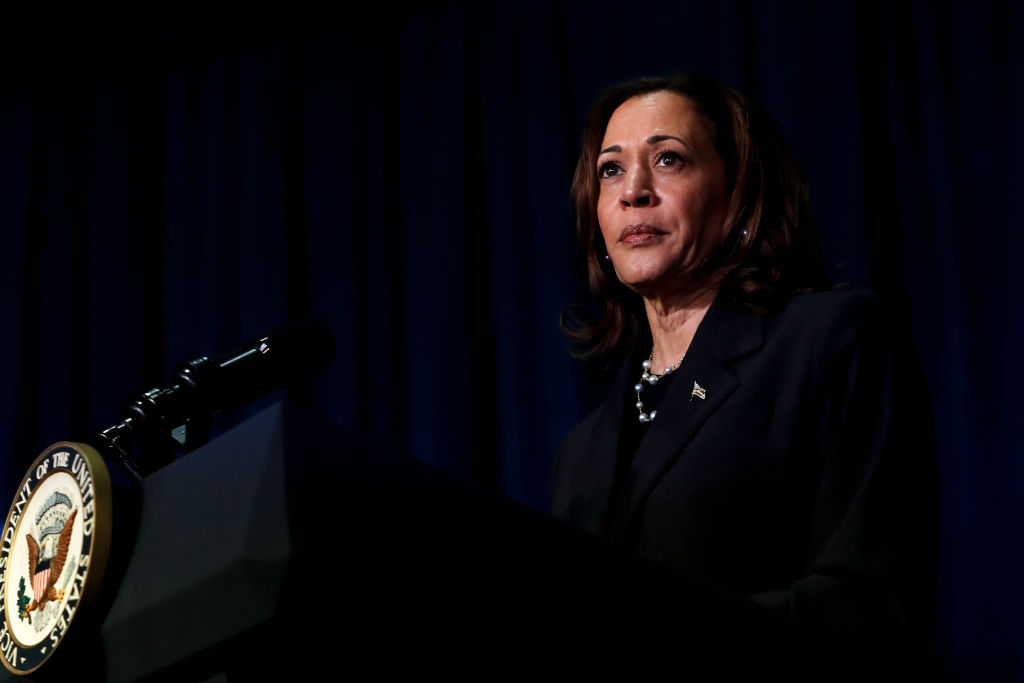
With President Joe Biden out less than a month before the Democratic National Convention, how will delegates actually go through the process of selecting a new nominee?
Tyler Hagenbuch, an elections attorney who advised the Biden campaign in 2020, spoke this weekend to Dispatch Politics about how we can expect things to proceed, and it begins with the simple fact that the power ultimately rests in the 3,934 regular delegates to the convention. Be it Vice President Kamala Harris or someone else, the eventual nominee must win a majority of those delegates, or about 1,968.
With all of those delegates pledged to Biden released from their obligation to vote for him at the convention by his withdrawal from the race, the first step for an aspiring nominee is to qualify for the roll-call nominating vote. Each candidate will need to collect at least 300 delegate signatures, with no more than 50 delegates from any given state, on a petition to qualify for nomination. During the roll call vote, delegates will be able to vote for any qualified candidate, and the candidate who receives the majority of delegates will win the nomination.
It’s that simple, and yet there is still a lot we don’t know.
“We need clarity,” said Hagenbuch. “I think we’re going to need clarity over the next month on a lot of things and a lot of different stages of the process from the various committees of the DNC and of the convention.”
The first point needing clarification is whether the DNC will proceed with its virtual roll call vote in early August. That vote had been planned back when Biden was still running and before the state of Ohio had amended its law to extend the period during which parties could nominate presidential candidates to appear on the ballot. Democratic Party leaders loyal to Biden appeared to be pursuing the virtual roll call anyway, which would have formally nominated Biden weeks before the August 19 start of the convention in Chicago, as the pressure mounted for the president to step aside.
Hagenbuch notes that if this moot virtual vote continues as planned, Harris (and any other candidate) will need to get the 300 signatures to qualify by August 7. That could be good for Harris, since she has plenty of advantages as the incumbent vice president and designated heir to the nomination. The delegates to this convention, it must be noted, are almost entirely Biden loyalists, meaning they’re the likeliest Democrats to take their cues from the current president on who their next nominee should be.
Another point needing clarity is whether any of the rules of the convention will change. Convention delegates can vote to change all of the rules governing how Democrats can nominate a presidential candidate. If these Biden loyalists decide to raise the threshold of petition signatures, for instance, that could happen at any point before the permanent convention rules are finalized and voted on.
“None of this is permanent,” said Hagenbuch. “All of this can change. So I can tell you what it is right now, but the delegates from the convention can change these things.”
And finally, this process for finding a new pick for president will have to happen twice, because nominees for vice president will have to meet all the same requirements and face a separate vote of the delegates. Under the current DNC rules, there’s no true presidential ticket until both nominees are independently selected by the convention. If Harris has little-to-no competition and is nominated by a supportive convention, she might expect her eventual running mate to have an equally smooth time.
But if Harris faces a real fight for the nomination—no serious contender has yet emerged, it must be noted—then that could bode poorly for a seamless nomination for vice president. Harris, Biden, and other party bigwigs certainly have influence and levers of power to bring to bear, and the drama of the past month may be all the delegates can handle. But with Biden releasing them, the choice of who will lead the Democratic party into November’s election remains in the hands of the party leaders and activists from all 57 state and territorial delegations.
“The delegates run the convention,” said Hagenbuch.
Kamala Harris Off to the Races
Kamala Harris is racing to lock down the support of prominent Democrats and key liberal constituencies as she takes the baton from Joe Biden in the race to become the party’s presumptive nominee and prevent former President Donald Trump from returning to the White House.
The Harris campaign’s first press release hit the Dispatch Politics email box at 12:41 a.m. ET and featured statements from more than 100 elected Democrats. Those supporters come from across the country, include members of Congress and sitting governors, and span the center-left political spectrum. Bolstering the vice president’s prospects of rolling into the Democratic convention in Chicago three weeks hence as the party’s new presumptive nominee were endorsements from three often-mentioned White House rivals: California Gov. Gavin Newsom, Pennsylvania Gov. Josh Shapiro and Michigan Gov. Gretchen Whitmer.
“Vice President Harris is the presumptive nominee. Anyone gumming up the works at this late date is hindering her in defeating Trump,” Democratic strategist Dane Strother said Sunday in a text exchange. “The prosecutor versus the criminal is a look that will bode well for Democrats nationwide.”
Grassroots contributions totalling nearly $50 million had poured into the Democratic online fundraising platform ActBlue in the hours after Biden announced his withdrawal from the 2024 contest with a letter published on X. Separately, the Harris campaign, formerly the Biden campaign, had received $49.6 million in direct donations post-announcement as of 5 a.m. ET Monday, a campaign official said.
The cash surge, coming after donations to the Biden campaign had dried up in the weeks following the 81-year-old president’s disastrous debate performance against Trump, suggests Harris, 59, has legitimate momentum.
The vice president also has the advantage of essentially assuming command of a sprawling Biden campaign apparatus that includes hundreds of offices and paid staff in the battleground states that will decide the election. That, at least, is what appears to be happening, according to sources who participated in a Sunday afternoon conference call with Biden campaign and Democratic National Committee staff convened by Biden campaign chair Jen O’Malley Dillon and campaign manager Julie Chavez Rodriguez.
“We’re all still working to beat Donald Trump, essentially,” said one Democratic operative who was on the call.
Additionally, in a move aimed at nipping any challenges in the bud—which may prove crucial to Harris’ bid to secure the nomination outright—sources close to the vice president told CNN that she was looking to pick a running mate from a collection of potential opponents who could also help her unite the party. This list includes Sen. Mark Kelly of Arizona; Kentucky Gov. Andy Beshear; North Carolina Gov. Roy Cooper; and Shapiro.
Still, even Democratic strategists convinced Harris’s ascension is a fait accompli—“At the end of the day, it’s going to be Kamala, it just is,” one said—predict the vice president will meet “some pockets of resistance.” Harris, a former U.S. senator from California, where she served as state attorney general, isn’t a towering figure in the party. Her 2020 presidential campaign was a flop and her job approval ratings as vice president have, at best, been no better than Biden’s since they took office.
In recent polls testing a hypothetical Harris-Trump matchup, the 78-year-old former president led, revealing the Democratic Party’s challenge this fall revolves around more than simply the fact that voters had concluded Biden was too old and infirm to serve another four years. All of this is prompting some Democrats to look beyond Harris, or at least push the party to avoid coronating the vice president without subjecting her to some stiff competition.
“I can’t imagine anyone would want to get this done quickly, as opposed to correctly. No names should be included or excluded for the sake of expediency,” said the former Democratic Party chairman of a swing state, who requested anonymity in order to speak candidly. “Let’s see who can win and go from there. The thread that binds all Democrats today is the desire to beat Trump. Delegates should focus their attention on that task.”
Although likely influenced by the endorsements the vice president is picking up, those DNC delegates’ votes are required to make the nomination official. That’s the case every four years. But the exercise is typically an afterthought, with the presumptive nominee rolling into the convention having won the majority of Democratic caucuses and primaries—and with delegates bound to his (or her) candidacy. So, in addition to burning up the phone asking for the support of prominent Democrats, Harris is no doubt doing the same with delegates.
Veteran Democratic operatives we spoke with said the next few weeks could be messy, as Biden loyalists angry about him being pushed out of the race attack Harris and leak embarrassing anecdotes about her. The same sort of material could emanate from Democrats who lack confidence in the vice president’s ability to beat Trump, hoping to foment enough skepticism about her to push alternatives into what is essentially a truncated primary campaign.
The question is whether any Democrat with the political gravitas, talented advisers, developed operation, and financial base of support will enter the fray and force Harris to look over her shoulder. Our sources are doubtful, saying Biden’s endorsement, and Harris’ access to his (now former) campaign operation and cadre of loyalists running the DNC give the vice president a huge advantage.
Donna West, a Democratic convention delegate from Nevada, a critical battleground state, told Dispatch Politics last week that she would be extremely dispirited if Biden dropped his candidacy. “It feels very undemocratic to me,” West said. “Millions of people voted for Biden.”
But on Sunday afternoon, she immediately endorsed Harris and said she planned to get back to work knocking on doors—now for the vice president. “I have endorsed Kamala Harris and will vote for her,” she said.
GOP ‘Election Integrity’ Claims Enter the Chat … Again
The 24 hours since Joe Biden dropped his reelection bid have been filled with speculation about the electoral implications of changes atop the Democratic ticket. But what about the post-election implications?
Removing Biden—who had been weighed down by low approval ratings even before his horrific debate performance on June 27 and lost additional ground as he tried unsuccessfully to show that the debate was a one-off—almost certainly improves Democratic presidential prospects, even if the candidate is Kamala Harris. But with Donald Trump as the Republican nominee, our presidential elections are no longer only about which candidate gets the most votes. Republicans have long signaled their intent to challenge the integrity of the 2024 election, and they’re already using the changes to the Democratic ticket to make their case.
For months, Trump’s rally speeches have included claims that Democrats stole the 2020 election and are seeking to do the same in 2024. Republican allies of the former president have refused to commit to accepting the results in November. The Heritage Foundation, the erstwhile Reagan-aligned think tank that has undergone a radical populist makeover, declared last week that there is “zero chance percent chance of a free and fair election.” Mike Howell, executive director of Heritage’s Oversight Project, added: “I’m formally accusing the Biden administration of creating the conditions that most reasonable policymakers and officials cannot in good conscience certify an election.” And last week, days before Biden’s announcement, Trump campaign chairman Chris LaCivita told Politico’s Jonathan Martin, “it’s not over on election day, it’s over on inauguration day.”
Biden’s departure adds a new argument that goes something like this: Joe Biden dropping out of the presidential contest makes clear that Democrats don’t care about voters. After all, more than 14 million Americans cast ballots for Biden in the primaries. And once it became clear that he wasn’t going to win, Democrats—prioritizing power over electoral integrity—pushed him to withdraw. Democrats were willing to steal an election in 2020. They’ve chosen to disregard votes cast in the 2024 Democratic primaries. No one should be surprised if they attempt to steal the election in November.
“Joe Biden succumbed to a coup by Nancy Pelosi, Barack Obama, and Hollywood donors, ignoring millions of Democratic primary votes,” Sen. Tom Cotton tweeted Sunday after the Biden news broke. “Donald Trump took a bullet for democracy.” Rep. Mike Waltz tweeted: “Pelosi, Obama, Schumer and a group of rich liberal elites just vetoed the votes of 14M Americans. Don’t EVER lecture people about ‘democracy’ again.”
In a post to his Truth Social account, Trump accused Democrats of “fraud” for supporting Biden and then allowing him to quit the race. “So, we are forced to spend time and money on fighting Crooked Joe Biden, he polls badly after having a terrible debate, and quits the race. Now we have to start all over again. Shouldn’t the Republican Party be reimbursed for fraud in that everybody around Joe, including his doctors and the Fake News Media, knew he was not capable of running for, or being, President? Just askin’?”
Expect to hear this argument a lot in the coming days, as Democrats settle on a replacement for Biden. And if the Biden replacement prevails in November, expect the changes atop the ticket to be a focal point of GOP stolen election complaints.
Notable and Quotable
“President Joe Biden made the right decision for our country and I thank him for putting the interests of our Nation ahead of his own. After the assassination attempt on President Trump and President Biden’s decision to end his campaign, now is a time for leaders in both parties to project calm and send a message of strength and resolve to America’s friends and enemies alike that, whatever the state of our politics, the American people are strong and our American military stands ready to defend our freedom and our vital national interests anywhere in the world.”
—Former Vice President Mike Pence in an X post, July 22, 2024




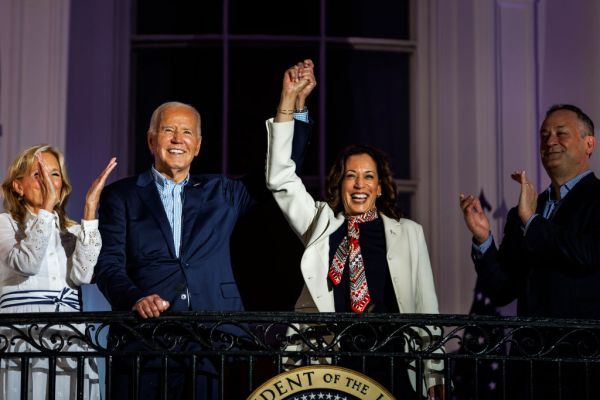
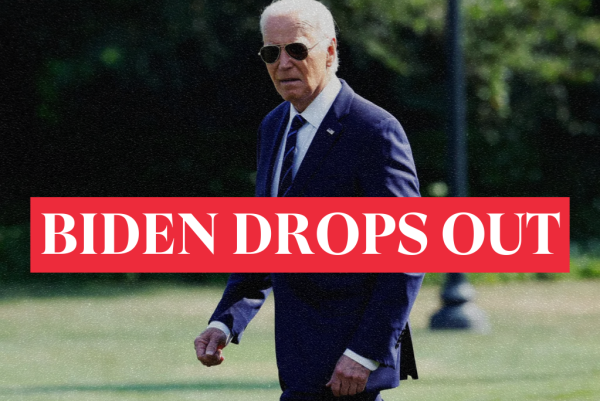
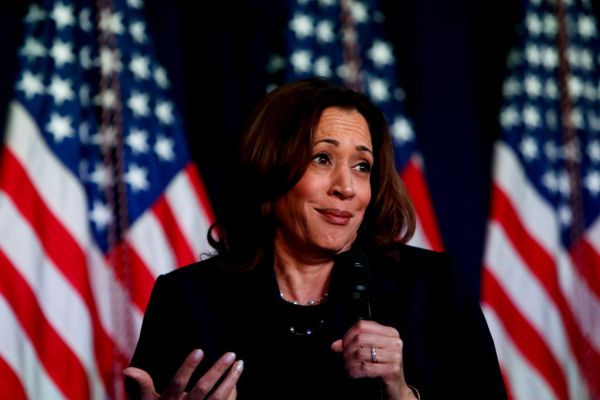

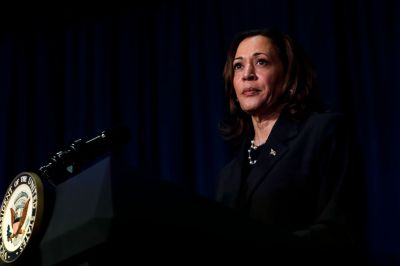
Please note that we at The Dispatch hold ourselves, our work, and our commenters to a higher standard than other places on the internet. We welcome comments that foster genuine debate or discussion—including comments critical of us or our work—but responses that include ad hominem attacks on fellow Dispatch members or are intended to stoke fear and anger may be moderated.
With your membership, you only have the ability to comment on The Morning Dispatch articles. Consider upgrading to join the conversation everywhere.